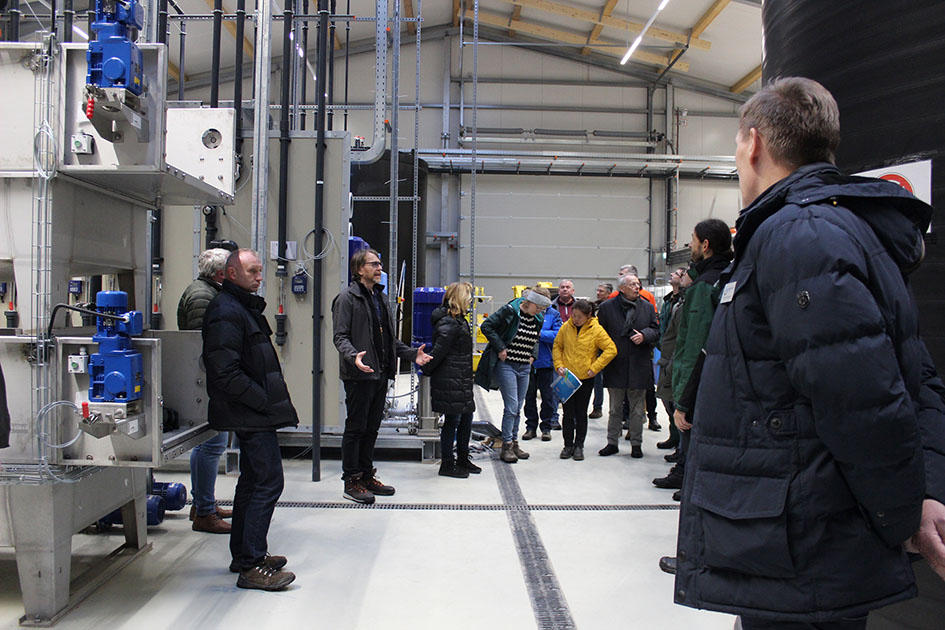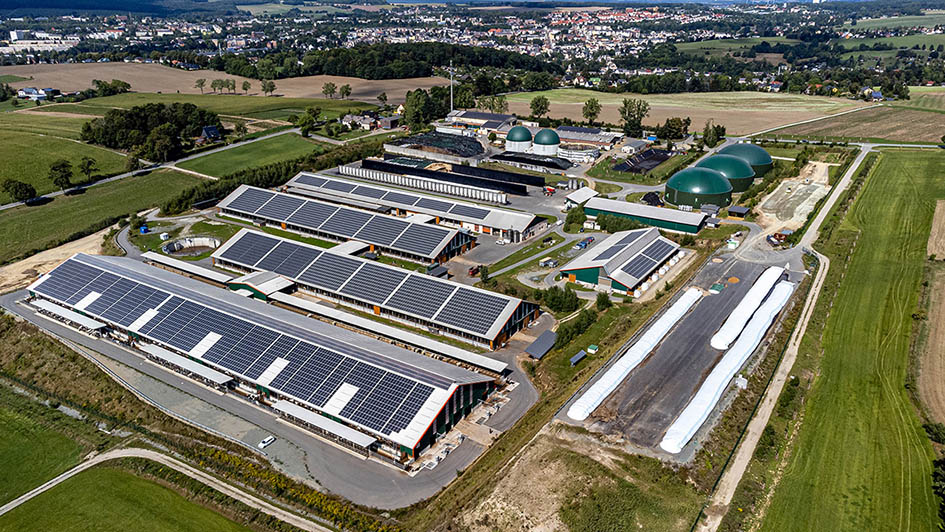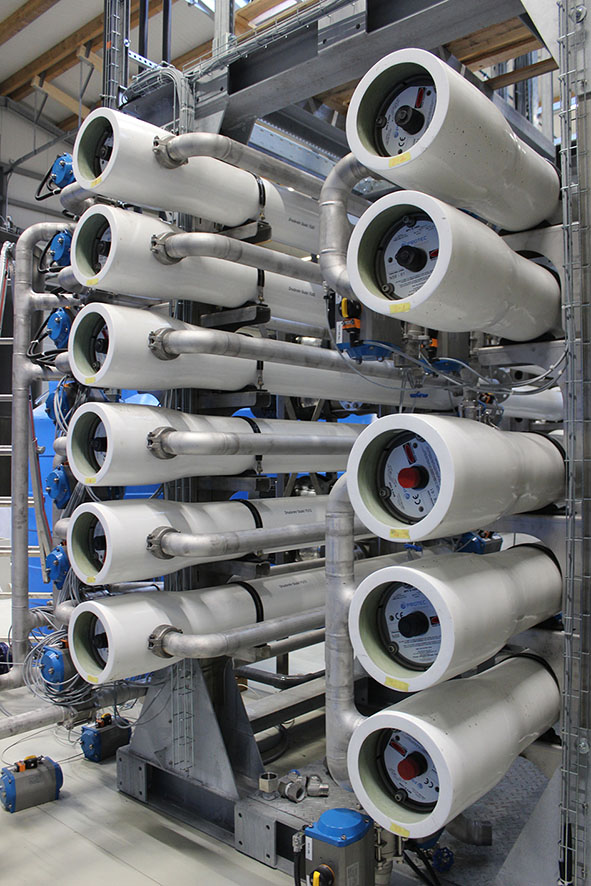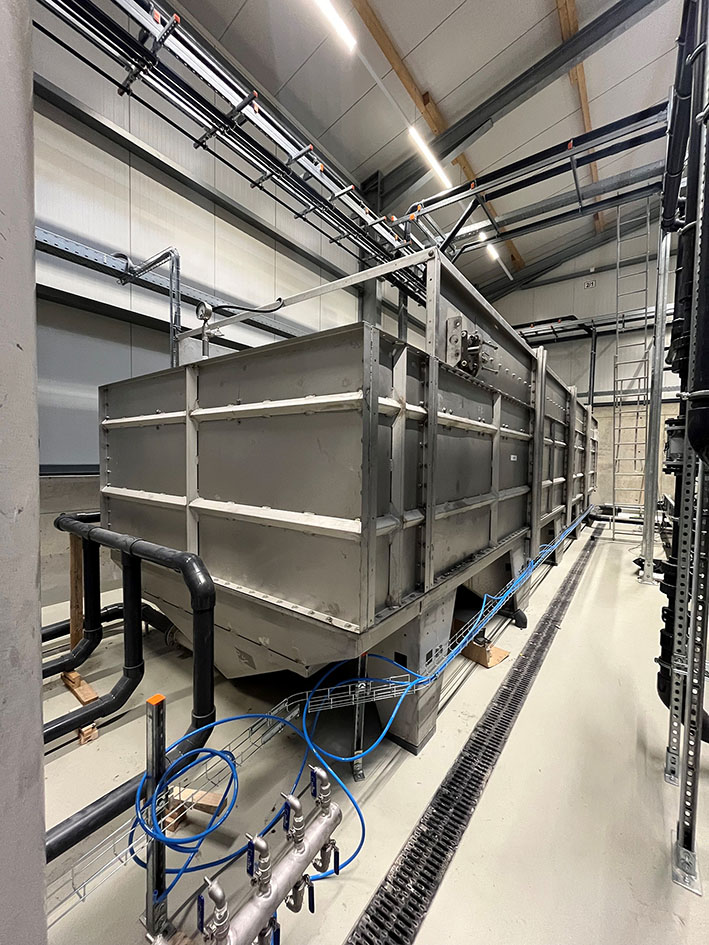



First Kumac Plant in Germany Goes Live
In March 2024, Agrar GmbH Reichenbach commissioned its Kumac digestate processing system from WELTEC BIOPOWER. This is the first Kumac plant to go live in Germany, in addition to the 16 that have been built worldwide to date. The agricultural company based in the Vogtland region of Saxony, Germany, specialises in dairy farming and the cultivation of feed crops. In addition to the dairy farm with 1,400 cows and breeding cattle, the farmers have been operating a biogas plant with an electrical output of 845 kW since 2006. The facilities generate up to 72,000 t of liquid manure and digestate a year
Every day, the biogas plant feeds 12,000 kWh of electricity into the public grid. In addition, the plant supplies up to 500 kW of heat to small consumers and to the site of the former Paracelsus Clinic in Reichenbach via a heating network. The plant‘s main business consists of the delivery of biogas via a 3.2-km raw biogas pipeline to the heating plant of Stadtwerke Reichenbach for the base load supply of flats and social facilities. The amount of electricity generated each year corresponds to the annual consumption of around 6,000 private households.
Tried-and-Tested, Fine-Tuned Processes
Within the scope of the Leipzig Biogas Expert Talks, Deutsche Biomasseforschungszentrum gemeinnützige GmbH (DBFZ) had already invited visitors to the Application Day in Reichenbach in December 2023. The numerous professional visitors made use of the opportunity to visit the biogas plant as well as the digestate processing plant of WELTEC BIOPOWER. The introduction of modern technologies and systems such as the Kumac system greatly contributes to the recycling of nutrients and the conversion of liquid manure into compost, fertiliser, animal bedding or biogas substrate. For the conversion, Kumac makes use of tried-and-tested processes that are fine-tuned to each other.
High-Quality Fertiliser for Plant Cultivation
„In Reichenbach, the output of the Kumac process consists of around 25 percent solid and 20 percent liquid farm manure and 55 percent dischargeable water. The resulting solid matter and the nutrient concentrate are applied as organic, high-quality fertiliser to our own crops. In this way, long transport routes are avoided,“ explains Lars Bittermann, Managing Director of Agrar Reichenbach GmbH. „This closes an efficient material flow cycle, and the individual areas of our portfolio interlock perfectly. From the cultivation of feed crops to dairy farming to the utilisation of the liquid manure in the biogas plant and the processing of digestate into fertiliser and water, all components have their place.“
Dry Matter Content: 30 Percent
In the first step of the liquid manure and digestate treatment, flocculants are added to the source material. These additives ensure flocculation of even the finest components, facilitating the separation from the water. At the same time, they contribute to the reduction of odour emissions. After the material has been squeezed through a belt press via various rollers against a second, water-permeable belt, the solid material can be used directly as fertiliser, compost, animal bedding or biogas substrate with a dry matter content of up to 30 percent
One Quarter of the Original Volume
Subsequently, the liquid phase is passed through a tank in which small particles and suspended solids are separated. Any remaining solid particles are removed by means of a fine filter. In the next step, the filtrate traverses a three-stage reverse osmosis process to remove salts and nutrients. The resulting liquid fertiliser is rich in nitrogen and merely accounts for one quarter of the original volume. Clear water accounts for the greatest share of the treatment products and is currently discharged into the receiving water.
Support from the European Agricultural Fund
The scalable modular system can be used from an amount of 70,000 t of liquid manure or digestate a year. Should the processing needs increase, several Kumac lines can easily be combined. „The processing here is almost fully automated, which also minimises the amount of personnel required“, says Managing Director Lars Bittermann. „By the way: Operators who decide to set up a system can receive funding from the European Agricultural Fund for Rural Development“, adds Nico Sudbrink, the responsible process engineer at WELTEC BIOPOWER.
Company Portrait Since its foundation in 2001, the WELTEC group of companies from Vechta in Lower Saxony has developed into one of the world‘s leading specialists for the construction and operation of biogas and biomethane plants. The Group covers the entire biogas value chain with the design, planning, and construction of energy plants, permanent and temporary plant operation, 24/7 service, and sustainable utilization concepts for output streams.
One of WELTEC BIOPOWER‘s strengths is the construction of individual, technically sophisticated solutions up to a plant size of ten megawatts. A central element here is the high proportion of components developed in-house. Stainless steel technologies also ensure flexible substrate use, fast assembly with low effort, and a consistently high-quality standard regardless of location. After commissioning, WELTEC‘s mechanical and biological service significantly ensures economic efficiency.
The company has just as much experience in the field of biogas production and utilization. At ten of its sites the plants produce biogas. Some of this is processed into biomethane and made available to energy suppliers and filling station operators throughout Germany via the public gas network. Furthermore, at 16 locations, municipalities and companies, such as those in the gardening, housing, and healthcare sectors, are supplied with decentralized heat as part of WELTEC‘s energy contracting.
Proximity to customers and investors is an important concern for the biogas specialist, which is why the Group is represented worldwide with its sales and service network. Customers include companies from the waste and food industries, agriculture, and the wastewater sector. The WELTEC Group and its 164 employees have implemented over 350 energy plants in more than 25 countries on five continents. The biogas specialist thus ensures annual savings of around 600,000 tons of CO2eq.




